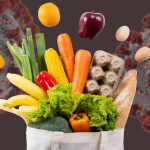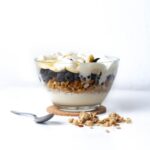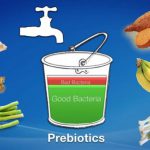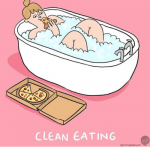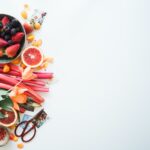By now you must have read and re-read supposedly almost all measures that you need to take to prevent or manage the current pandemic of Covid 19/Corona Virus.
Unfortunately, it is quite unsettling to see how so many nutrition myths are being spread regarding the virus. Misinformation is ranging from “overnight superfoods” that can cure the disease to preventive mechanisms that are somewhat unorthodox. Not to mention how the overstocking of food in lieu of the unknown future has outrightly revealed our households’ food insecurity!
This article highlights some credible nutrition precautions and recommendations that have been solely adapted from scientific entities namely: World Health Organization, CDC, American and British Dietetic organizations.
Eat Fresh food as much as you can
Although it is certainly difficult to keep up with having fresh vegetables and fruits in the house, it is advisable to choose fresh vegetables when you have the chance to go for your grocery shopping. It is estimated that most countries are somewhat normalizing their stock of produce after the initial panic shopping wave subsided.
I always recommend shopping for most of your foodstuff on the peripheries or rather the outer limits of the supermarkets as opposed to the isles. That way you can purchase fresh fruits, vegetables, lentils, whole grains, fish, eggs, milk and so on. Do not buy food that you might regret eating later.
The more raw vegetables you buy, the healthier the snacks you will find yourself consuming.WHO (World Health Organization) recommends that you eat 2 cups of fruit (4 servings), 2.5 cups of vegetables (5 servings), 180g of grains or 160g of meat (limit the intake to 1 or 2 times per week) or 160g of Poultry or any other white meat (2 to 3 times per week)
Canned and Frozen Food can Come in Handy!
Yes, you read right! Both the WHO and American Dietetic Association recommend that you can stock up on canned and frozen food as long as you ensure that you read the nutrition labels! This would be a great time to finally start reading them!
Look for phrases such as: “packed in 100% juice”, “no added sugars”, “no salt added”, “unsweetened”, “reduced sodium” on the food labels and choose to buy those. Ensure that you rinse out the vegetables from the liquid they have been preserved in, to reduce the amount of sodium they were preserved in.
Read all the labels on frozen food as well, before you choose to purchase them. Limit the choices to food that is lower in saturated fat, added sugars, and salt. Compare the brands and always purchase the one that has higher fiber, vitamins, and minerals.
Should you consider Supplements or any other “Super Food”?
You cannot simply boost your immunity through a new diet or a “superfood” being masqueraded to prevent you from catching the coronavirus! So far, there is no scientific body that has firmly authorized any claim for a food or food component to be labeled as “protective against infection”. Refrain from such claims and from cooking up your own cocktail of nutrients out of panic from what you heard or read!
It is, however, important to note that there are many nutrients that you could result to as a support for the normal functioning of your immune system. Including Vitamins, A, B complexes, C, D along with Zinc, Iron, Folate, Copper go a long way in SUPPORTING and not necessarily boosting your immunity, since the immune system is very complex and varies from one person to the other.
Vitamin D specifically works hand in hand with Calcium and Phosphorous for healthy bones, muscles, and teeth. If you do not have any way to sit and bask in the sun, you can instead use the Vitamin D supplements. Ideally, adults and children can take 10 micrograms of Vitamin D daily to supplement their diet. Other sources of essential fats and Vitamin D are such as Fish, Salmon, Cod Liver, Egg Yolks, meat, offal, milk, margarine, some yogurts, and some breakfast cereals and infant Formula can be incorporated.
Other General Tips
1. Ensure that you are drinking as much water or fluids as possible within the day, constantly avoiding fizzing drinks with lots of sugar.
2.Limit your salt intake to at least 1 teaspoon per day, and only use iodized salt
3.Avoid eating out and if you order in, choose from grilled, baked or steamed food
4.Practice a first in first out rule to eat the oldest food before buying newer items from the stores
5.Perform regular exercises albeit about 30 minutes per day as recommended by WHO.
6.Involve your kids during the meal preparation to avoid their aggravation from their norm that could lead to their picky eating behaviors
Overall, if you have any other underlying conditions, remember to adhere to your already set out guidelines by your physician, dietitian, and nutritionists. Consciously choose to create a new healthy habit around food despite the uncertainty of times to avoid being overweight and increasing the risk of other non-communicable diseases.
I know you may have some questions, post them below or send them to info@ask-thenutritionist.com


